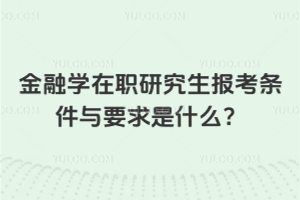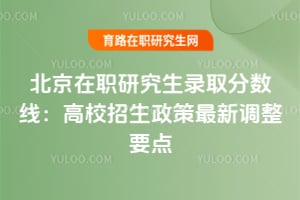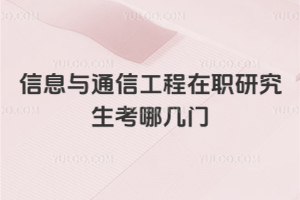- 微信公眾號

政策解讀
- 微信小程序

快速擇校

政策解讀

快速擇校
Early in the age of affluence (富裕) that followed World War II, an American retailing analyst named Victor Lebow proclaimed, "Our enormously productive economy...demands that we make consumption our way of life, that we convert the buying and use of goods into rituals, that we seek our spiritual satisfaction, our ego satisfaction, in consumption... .We need things consumed, burned up, worn out, replaced and discarded at an ever increasing rate."
Americans have responded to Lebow's call, and much of the world has followed.
Consumption has become a central pillar of life in industrial lands and is even embedded in social values. Opinion surveys in the world's two largest economies—Japan and the United States—show consumerist definitions of success becoming ever more prevalent.
Overconsumption by the world's fortunate is an environmental problem unmatched in severity by anything but perhaps population growth. Their surging exploitation of resources threatens to exhaust or unalterably spoil forests, soils, water, air and climate.
Ironically, high consumption may be a mixed blessing in human terms, too. The time-honored values of integrity of character, good work, friendship, family and community have often been sacrificed in the rush to riches.
Thus many in the industrial lands have a sense that their world of plenty is somehow hollow—that, misled by a consumerist culture, they have been fruitlessly attempting to satisfy what are essentially social, psychological and spiritual needs with material things.
Of course, the opposite of overconsumption—poverty—is no solution to either environmental or human problems. It is infinitely worse for people and bad for the natural world too. Dispossessed (被剝奪得一無所有的) peasants slash-and-burn their way into the rain forests of Latin America, and hungry nomads (游牧民族) turn their herds out onto fragile African grassland, reducing it to desert.
If environmental destruction results when people have either too little or too much, we
are left to wonder how much is enough. What level of consumption can the earth support?
When does having more cease to add noticeably to human satisfaction?
1. The emergence of the affluent society after World War II .
A. led to the reform of the retailing system
B. resulted in the worship of consumerism
C. gave rise to the dominance of the new egoism
D. gave birth to a new generation of upper class consumers
2. Apart from enormous productivity, another important impetus to high consumption
is______.
A. the people's desire for a rise in their living standards
B. the concept that one's success is measured by how much they consume
C. the imbalance that has existed between production and consumption
D. the conversion of the sale of goods into rituals
3. Why does the author say high consumption is a mixed blessing?
A. Because poverty still exists in an affluent society.
B. Because overconsumption won't last long due to unrestricted population growth.
C. Because traditional rituals are often neglected in the process of modernization.
D. Because moral values are sacrificed in pursuit of material satisfaction.
4. According to the passage, consumerist culture .
A. will not alleviate poverty in wealthy countries
B. will not aggravate environmental problems
C. cannot thrive on a fragile economy
D. cannot satisfy human spiritual needs
5. It can be inferred from the passage that .
A. human spiritual needs should match material affluence
B. whether high consumption should be encouraged is still an issue
C. how to keep consumption at a reasonable level remains a problem
D. there is never an end to satisfying people's material needs
特別聲明:①凡本網(wǎng)注明稿件來源為"原創(chuàng)"的,轉(zhuǎn)載必須注明"稿件來源:育路網(wǎng)",違者將依法追究責(zé)任;
②部分稿件來源于網(wǎng)絡(luò),如有侵權(quán),請聯(lián)系我們溝通解決。

天津雙證在職研究生院校有河北工業(yè)大學(xué)、天津大學(xué)等。雙證指非全日制研究生,需參加全國統(tǒng)考,每年10月報名,過國家線有機會錄取,畢業(yè)獲學(xué)歷證與學(xué)位證,學(xué)信網(wǎng)可查,認(rèn)...

金融學(xué)在職研究生報考,非全日制方式要求本科畢業(yè)或?qū)?飘厴I(yè)滿2年,初試與全日制考試科目相同;同等學(xué)力申碩方式,大專及以上學(xué)歷可報名課程學(xué)習(xí),本科有學(xué)位滿3年可申碩...

北京在職研究生錄取分?jǐn)?shù)線迎來新變化,高校招生政策調(diào)整直接影響錄取機制。新政策聚焦分?jǐn)?shù)線設(shè)定標(biāo)準(zhǔn)、專業(yè)招生比例優(yōu)化等核心要素,旨在提升教育質(zhì)量。這些變動對在職考生...

在職醫(yī)生報考醫(yī)學(xué)在職研究生常面臨工作與學(xué)習(xí)平衡的挑戰(zhàn)。本文提供全面攻略,詳細(xì)解析報名流程、資格審核和考試準(zhǔn)備策略,包括高效復(fù)習(xí)方法和時間管理技巧。注意事項部分強...

信息與通信工程在職研究生若通過同等學(xué)力申碩方式,入學(xué)無需考試。申碩階段考試一般考外語(如英語、法語等)和專業(yè)課(涵蓋信號與系統(tǒng)、通信原理等)。考試通過標(biāo)準(zhǔn)為及格...

電氣工程在職研究生若通過同等學(xué)力申碩方式,學(xué)費一年在1.4萬-1.79萬元左右(學(xué)制多為2年)。如華北電力大學(xué)學(xué)費3萬元,平均一年1.5萬元;河北工業(yè)大學(xué)學(xué)費2...
評論0
“無需登錄,可直接評論...”